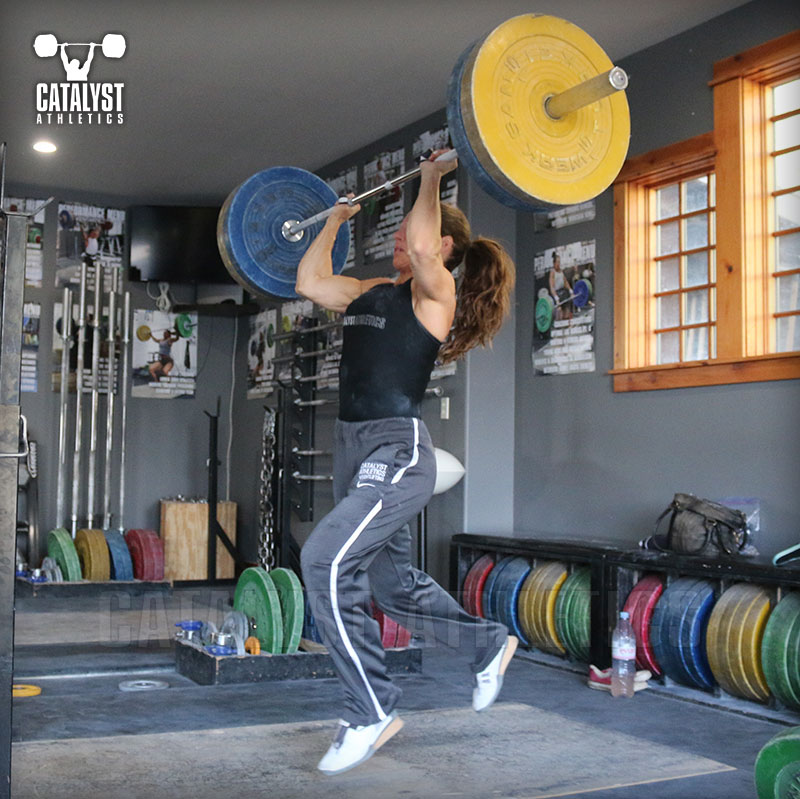Ask Greg: Issue 200

Aziz Asks: What should an Olympic lifter do between programs or phases? Should I take a week off after peaking to allow joints and tendons to fully recover?
Greg Says: There should definitely be some kind of intentional transition between training cycles, especially for cycles that peaked for competition, which have the additional stress from the adrenaline and emotion and require more recovery.
In addition to the issue of recovery, it’s also often necessary, or at least helpful, to prepare for the cycle in terms of exercise selection and volume. You’ll be doing exercises that are different from what you just completed, since any weightlifting training cycle is going to be whittled down to the competition lifts and not a lot else, and you may even be introducing completely new exercises. In either case, the transition period between cycles is a good time to get a chance to practice these exercises with lighter weights—this will let you learn them better so that once the cycle starts with more significant loading, you’re doing them better and gaining more from them; this also is a way to ease into what’s going to be much higher training volume than the last cycle ended with to minimize soreness and fatigue.
After major competitions, I give my lifters a week “off”—it’s not that I don’t want them training at all, but that I want them doing relatively little and keeping it easy and fun. I have them do whatever they feel like as long as it’s easy and enjoyable, which is a good mental break as well.
After that, or following cycles that didn’t lead into a competition, I use a transition I call Week 0. This is a really simple but effective way to plan a transition/recovery week. Take the first week of the next cycle and simply cut 10-15% off the weights and reduce the volume a bit by trimming sets and/or some reps. You want maybe 60-70% of the week 1 volume or so.
Greg Says: There should definitely be some kind of intentional transition between training cycles, especially for cycles that peaked for competition, which have the additional stress from the adrenaline and emotion and require more recovery.
In addition to the issue of recovery, it’s also often necessary, or at least helpful, to prepare for the cycle in terms of exercise selection and volume. You’ll be doing exercises that are different from what you just completed, since any weightlifting training cycle is going to be whittled down to the competition lifts and not a lot else, and you may even be introducing completely new exercises. In either case, the transition period between cycles is a good time to get a chance to practice these exercises with lighter weights—this will let you learn them better so that once the cycle starts with more significant loading, you’re doing them better and gaining more from them; this also is a way to ease into what’s going to be much higher training volume than the last cycle ended with to minimize soreness and fatigue.
After major competitions, I give my lifters a week “off”—it’s not that I don’t want them training at all, but that I want them doing relatively little and keeping it easy and fun. I have them do whatever they feel like as long as it’s easy and enjoyable, which is a good mental break as well.
After that, or following cycles that didn’t lead into a competition, I use a transition I call Week 0. This is a really simple but effective way to plan a transition/recovery week. Take the first week of the next cycle and simply cut 10-15% off the weights and reduce the volume a bit by trimming sets and/or some reps. You want maybe 60-70% of the week 1 volume or so.
| Greg Everett is the owner of Catalyst Athletics, publisher of The Performance Menu Journal and author of Olympic Weightlifting: A Complete Guide for Athletes & Coaches, Olympic Weightlifting for Sports, and The Portable Greg Everett, and is the writer, director, producer, editor, etc of the independent documentary American Weightlifting. Follow him on Facebook here. |
Search Articles
Article Categories
Sort by Author
Sort by Issue & Date
Article Categories
Sort by Author
Sort by Issue & Date

